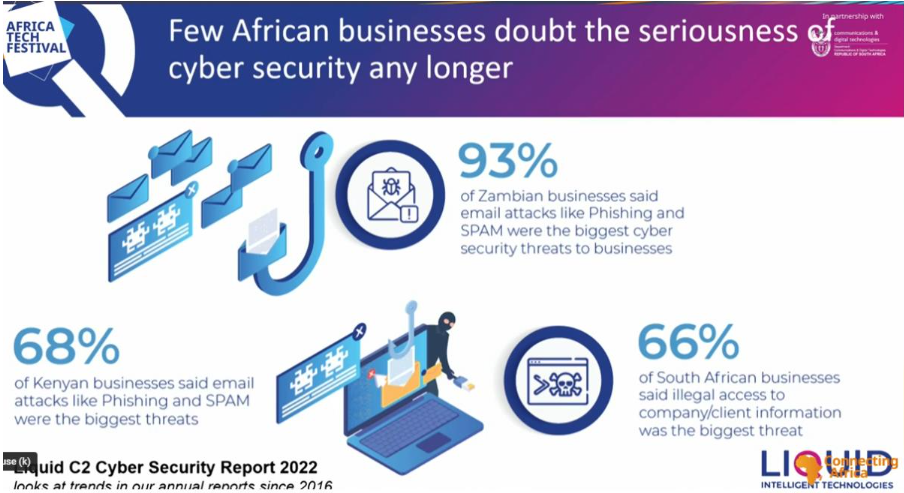
Cybersecurity Evolution: Liquid Technologies' Insights at Africa Tech Festival
Nic Rudnick, Group Deputy Executive Chairman of Liquid Intelligent Technologies, delivers a session at Africa Tech Festival 2023, on the evolution of technology and the consequences for cybersecurity in Africa.
To experience and be part of talks like this one, as well as unrivalled networking opportunities and social events, register for our 2024 show.
How Does Cybersecurity Technology Continue to Evolve in Response to New Threats and Vulnerabilities?
Note: The below article has been created using a transcript of the session video.
Every year, this conference amazes me with how much technology has changed. I first attended this conference 19 or 20 years ago, sparked by the advent of mobile phones across Africa.
Since then, we've seen new technologies develop annually, starting from 2G. I remember when WAP was announced as the next big thing while we were building 16-meter satellite antennas. Now, we're at 5G. This year, the arrival of new AI applications has been one of the most significant developments in the last 20 years, with impacts yet to be fully seen.
A couple of months ago in San Francisco, I rode in a driverless vehicle summoned via an app called Waymo, a Google project. It arrived, I got in, and it took me to my destination, completely driverless.
A Google developer mentioned that statistics show it's safer than human-driven cars, as humans make errors and potentially cause accidents. Similarly, most in-flight incidents are caused by human error.

Connectivity and Cybersecurity in Africa
In 2009, with the first C cables, the fiber map of Africa looked sparse. By 2023, it had transformed into a network of fiber covering the continent. This connectivity has enabled significant progress but also allowed criminals to target us and our customers. Interpol analyzed cybersecurity across Africa and found business email to be the most prevalent threat, causing over $2.4 billion in losses in the United States alone.
This threat is rapidly spreading across Africa, with 50% of attacks targeting South Africa.

Rising Cyber Attacks in Africa
In July this year, a major cyber attack on Kenya targeted government infrastructure, electricity, and communication networks, crippling government facilities for weeks. This attack extended to banks, taking down all facilities of a major Kenyan bank.
We identified the threat as originating from a group called Anonymous Sudan, though their Russian is better than their Arabic.

Crimeware and AI Threats
Cybercrime has evolved into an entrepreneurial endeavor with crimeware as a service. For instance, GANDcrab facilitated $2 billion worth of ransomware, providing software that others can license to extract ransom. The emerging age of AI also enables the creation of deepfakes, as seen in a recent incident involving a fake Tom Hanks endorsement.
The New Threat Landscape
A German company was tricked into transferring €300,000 due to a deepfake phone call from someone sounding exactly like their UK-based CEO, discussing personal details and company specifics. This demonstrates the new threat of AI-generated deepfakes that can bypass traditional security measures.
Defending Against AI-Driven Cybersecurity Threats
The ability to collect and use personal information to create credible stories is now available to criminals. It's no longer just celebrities who need to worry about their image; anyone's face or voice can be used to create deepfakes that compromise organizations. This raises the need for new defences, such as copyrighting images and voices and using advanced authentication methods.
AI in Cyber Defence
Generative AI is also aiding in cyber defence. Companies like Google and Microsoft are developing new AI-driven cyber defences, which simplify defending against these attacks. AI requires significant compute power, which currently favours the big players. Our fusion centres use AI to detect patterns and respond to threats, addressing the shortage of cybersecurity skills in Africa.
You've been a tremendous audience here at AfricaCom. No audience could have been better. Thank you.
